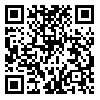Volume 27, Issue 44 (2020)
J Tax Res 2020, 27(44): 9-46 |
Back to browse issues page
Download citation:
BibTeX | RIS | EndNote | Medlars | ProCite | Reference Manager | RefWorks
Send citation to:



BibTeX | RIS | EndNote | Medlars | ProCite | Reference Manager | RefWorks
Send citation to:
Presenting a Risk-Based Tax Audit Model for Small and Medium Enterprises (SMEs) in Iran. J Tax Res 2020; 27 (44) :9-46
URL: http://taxjournal.ir/article-1-1780-en.html
URL: http://taxjournal.ir/article-1-1780-en.html
Abstract: (4909 Views)
Abstract
Today, small businesses play a role in the economic growth of the country, and given the remarkable capacity of their businesses and their contributions to payroll taxes, metrics and increases. Risk in these firms will have a significant impact on tax revenues, so estimating and analyzing the risk associated with economic agents is one of the pressing needs of the tax system in the country. Develop an improved model of risk analysis of the Organization for Economic Co-operation and Development (OECD) after identifying the factors affecting the level of tax audit risk of those firms and presenting them. During the years 1396 till 1397 model is a risk-based audit.
In line with this research, based on the views of tax experts and the IACPA, first we use the Delphi technique and the PESTEL model in identifying factors affecting compliance level and the fuzzy network analysis process combination method in measuring compliance level. And, identifying the factors affecting the level of risk and presenting the SMEs risk-based audit model in Iran, and the final selected indicators for assessing the level of tax payer's risk based on the opinions of the tax experts and the Iranian Society of Certified Accountants. Questionnaires were conducted in the form of pre-designed questionnaires and by providing a preliminary list of effective criteria on The Risk-Based Audit Model for Small and Medium-Sized Enterprises (SMEs) was proposed for the Risk-Based Tax Audit.
Finally, in order to design the coping strategies, the behavioral analysis was performed and then the strategies needed to reduce and minimize the identified risks.
Today, small businesses play a role in the economic growth of the country, and given the remarkable capacity of their businesses and their contributions to payroll taxes, metrics and increases. Risk in these firms will have a significant impact on tax revenues, so estimating and analyzing the risk associated with economic agents is one of the pressing needs of the tax system in the country. Develop an improved model of risk analysis of the Organization for Economic Co-operation and Development (OECD) after identifying the factors affecting the level of tax audit risk of those firms and presenting them. During the years 1396 till 1397 model is a risk-based audit.
In line with this research, based on the views of tax experts and the IACPA, first we use the Delphi technique and the PESTEL model in identifying factors affecting compliance level and the fuzzy network analysis process combination method in measuring compliance level. And, identifying the factors affecting the level of risk and presenting the SMEs risk-based audit model in Iran, and the final selected indicators for assessing the level of tax payer's risk based on the opinions of the tax experts and the Iranian Society of Certified Accountants. Questionnaires were conducted in the form of pre-designed questionnaires and by providing a preliminary list of effective criteria on The Risk-Based Audit Model for Small and Medium-Sized Enterprises (SMEs) was proposed for the Risk-Based Tax Audit.
Finally, in order to design the coping strategies, the behavioral analysis was performed and then the strategies needed to reduce and minimize the identified risks.
Type of Study: Research |
Subject:
Economic
Received: 2020/07/12 | Accepted: 2021/02/28 | Published: 2021/02/28
Received: 2020/07/12 | Accepted: 2021/02/28 | Published: 2021/02/28
| Rights and permissions | |
 |
This work is licensed under a Creative Commons Attribution-NonCommercial 4.0 International License. |




